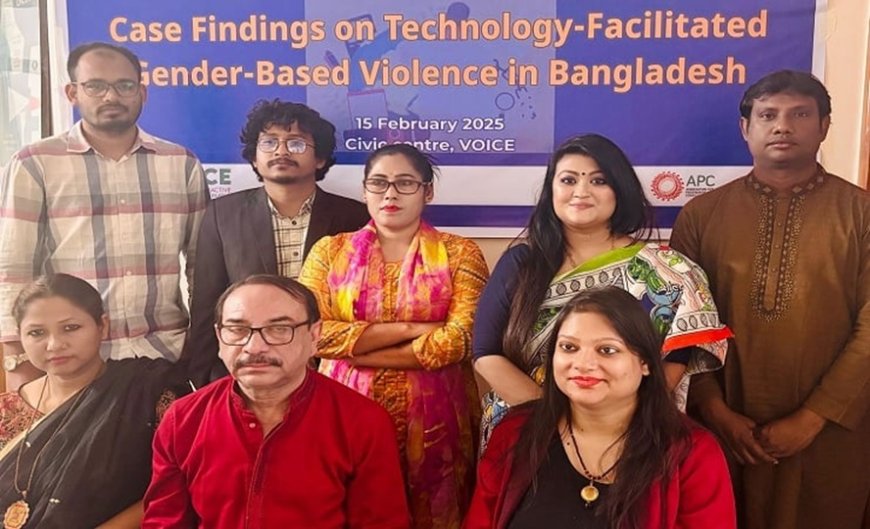Women Facing Cyber Attacks for Ideological and Professional Excellence

Women engaged in ideological work or making remarkable contributions in their respective fields are increasingly becoming targets of cyberattacks. According to recent findings, 41% of the victims of online harassment have experienced doxxing. Additionally, 18% had their Facebook accounts hacked, 17% were blackmailed, 9% faced impersonation-based harassment, and 8% were subjected to cyberbullying.
These statistics were revealed during an information-sharing meeting organized by the non-governmental organization "Voices for Interactive Choice and Empowerment" (VOICE) at its office in Shyamoli, Dhaka, on Saturday. Based on its survey, VOICE reported that women engaged in journalism or human rights advocacy, categorized as "ideological professions", are disproportionately targeted in cyberattacks. The impact of such online violence extends severely into their real lives.
As part of the survey, 13 incidents since last October were analyzed. Promiti Prova Chowdhury, the project manager of VOICE, stated, “Women involved in ideological work, such as journalists, human rights activists, or those making extraordinary contributions in their respective fields, are more frequently subjected to cyberattacks.”
She further added, “Women participating in anti-discrimination student movements have faced significant harassment on social media platforms, which has had a severe impact on their real lives. As a result, many have refrained from expressing political opinions or practicing their freedom of speech online following the change in government.”
The meeting also highlighted that 60,808 women have sought assistance from the Cyber Support for Women unit of the police over a period of three and a half years (until May 2024). Ahmed Swapan Mahmud, Executive Director of VOICE, emphasized the need for public awareness in tackling online sexual harassment.
“One of the most effective tools to combat online harassment is public awareness,” he said, adding, “Raising awareness through social media campaigns and workshops about the various forms of online violence, their consequences, and the relevant laws is essential.”









































































































































































































